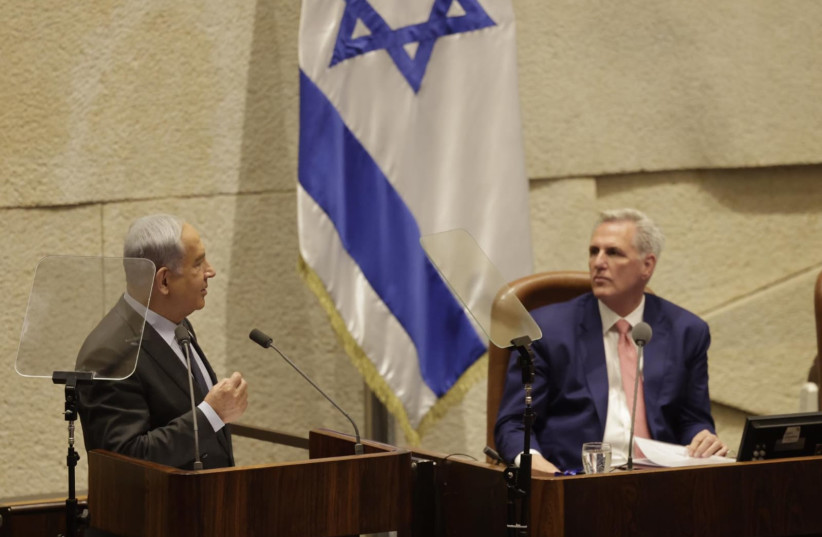Prime Minister Benjamin Netanyahu is not following through on his coalition agreement promises to UTJ – and if he thinks he cannot fulfill them, he should resign, Jerusalem and Tradition Minister Meir Porush said Tuesday.
Porush’s comments in an interview on the Kikar HaShabbat news outlet mark unusual criticism from within the government over the prime minister’s performance, and comes at a tense moment as the coalition races to pass the national budget by the requisite May 29.
Porush specifically addressed three issues. The first is the issue of state funding for the haredi (ultra-Orthodox) private school systems, which the Likud promised would rise. Porush argued that the upcoming budget does not reach the amount of the agreed-upon raise.
The second issue is a haredi IDF conscription bill. The Likud promised that a new bill would pass by the time the budget passes. The current bill is set to expire on July 31, and while two haredi factions – Shas and the Lithuanian Degel Hatorah (which makes up half of United Torah Judaism) – concurred that it was not realistic to pass such a bill by May 29, the hassidic Agudat Yisrael (which makes up the second half of UTJ), to which Porush belongs, has not given up this demand.
The third demand is an override clause with a 61-MK majority, which would enable a given coalition to re-legislate a law that the High Court deemed unconstitutional. UTJ demanded this so that it could be used in case the High Court strikes down the new haredi conscription bill.

“Netanyahu cannot be the one to say ‘I can’t,’” Porush said. “You can’t? Then don’t be prime minister,” the minister added.
Coalition tensions are also coming from rockets
Tension also came up within the coalition over the rockets from Gaza on Tuesday. Likud MK Danny Danon criticized the government, writing on Twitter: “Ramadan is over, and the excuses are over. There is no reason now to put up [with the rockets]. Now is the time to strike with power against those who attack us.”
A number of MKs, such as Otzma Yehudit MK Almog Cohen, made similar comments, with Cohen even hinting that if the government does not carry out a sufficient military response to the rocket attacks – his party will reconsider its membership in the coalition.
Negotiating teams representing the coalition and the opposition parties Yesh Atid and National Unity held another day of talks at the President's Residence on Tuesday.
While the talks have been held behind closed doors and almost no information has been leaked, a number of media outlets reported an unusual occurrence on Tuesday, whereby National Unity MK Gideon Sa’ar and government secretary Yossi Fuchs argued to a point where Sa’ar stormed out of the negotiating room while shouting.
The President’s Office said on Tuesday that the discussions centered on the issue of the attorney-general’s authorities and the authorities of legal advisers in government ministries. The talks were held in a “to-the-point, professional, respectful atmosphere, with a deep sense of commitment to the process,” the office said.
“As is natural, the discussions include differences of opinion – this is natural, and is handled professionally and collegially,” the office added.
The talks will continue on Thursday and deal with the issue of the “reasonableness factor,” by which the High Court strikes down executive decisions due to their “extreme unreasonableness.” The next stage of the talks will be decided on afterwards.
“In the room, all of the participants stress their full commitment to the process, the great importance of the talks and the honest and joint wish to arrive at agreements,” the President’s Office concluded.
